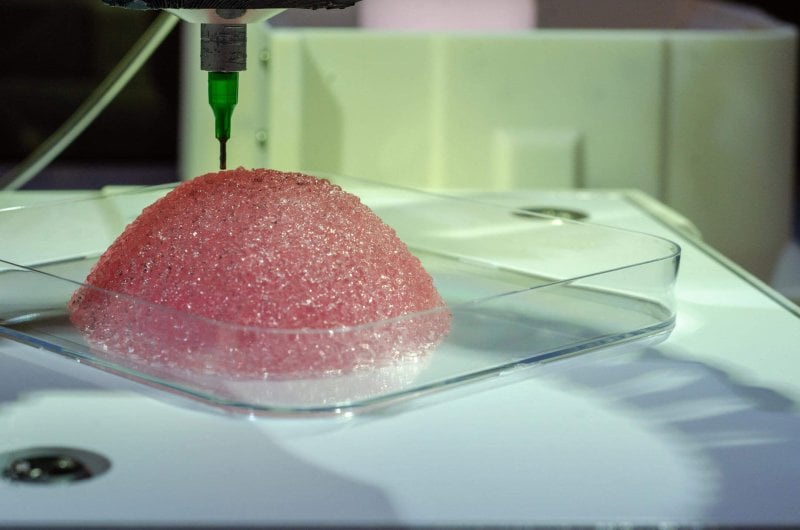Every year, 2 million people worldwide are diagnosed with breast cancer. Most choose not to have their breasts reconstructed; in the UK, it is only about 30%. Now a handful of startups want to change that, armed with 3D-printed implants that grow new breast tissue before breaking down without a trace. “The whole implant is fully degradable,” says Julien Payen, CEO of the startup Lattice Medical, “so after 18 months you don’t have any product in your body.”
Healshape uses a hydrogel to 3D-print a soft implant that will slowly be colonised by the person’s own fat cells, the initial batch of which is injected, while the implant disappears over six to nine months. The company CollPlant is developing something similar using a special collagen bioink, extracted from tobacco leaves it has genetically engineered to produce human collagen. “I think it will change the opinion of many patients,” says CEO, Yehiel Tal.
Lattice Medical has a different approach. Its implant is a 3D-printed cage made of a degradable biopolymer, in which they encase a small flap from underneath the breast area. This flap then grows to fill the cage with fat tissue, while the cage itself is absorbed by the body, ultimately leaving a regrown breast in its place.































